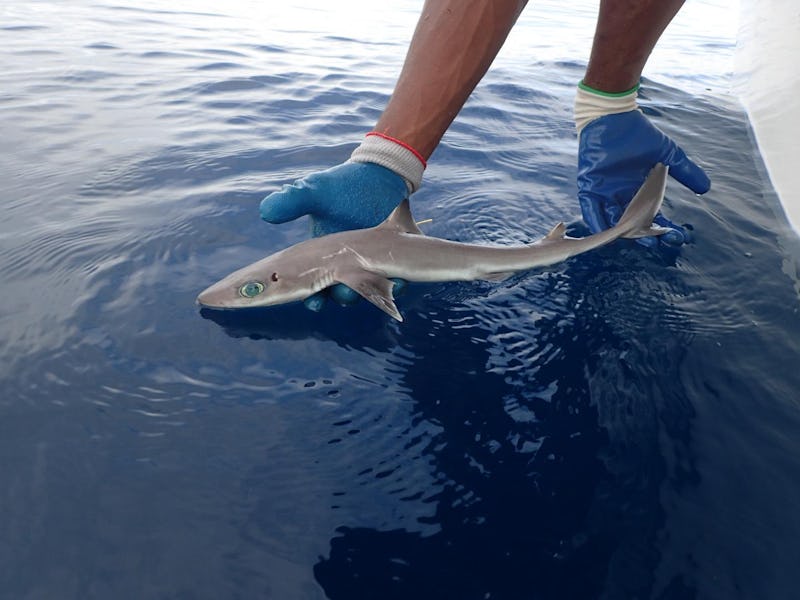How Scientists Discovered a New Shark Species Near Florida
Meet Genie’s Dogfish.

Marine biologists have a reason to celebrate this Shark Week. A team of scientists from the Florida Institute of Technology has discovered a new species of deep-water dogfish shark in the Gulf of Mexico and the western Atlantic Ocean.
The species, named Squalus clarkae, also known as Genie’s Dogfish, was identified by Dr. Toby Daly-Engel, assistant professor and shark biologist, along with marine scientists Dr. Mariah Pfleger of Oceana and Florida State University’s Dr. Dean Grubbs and Dr. Chip Cotton. The confirmation of this new species was reported this month in the journal Zootaxa.
Before their discovery, biologists had labeled this species of dogfish shark Squalus mitsukurii, a type that appears similar to the Genie’s Dogfish on the surface. It wasn’t until Daly-Engel’s team applied genetic testing and morphology, a method that studies an organism through physical appearance, that scientists could identify Genie’s Dogfish as a new and separate species.
Genie's Dogfish
“Deep-sea sharks are all shaped by similar evolutionary pressure, so they end up looking a lot alike,” Daly-Engel explained. “So we rely on DNA to tell us how long a species has been on its own, evolutionarily, and how different it is.” Her discovery is a boon to marine biologists who are racing against time to identify and monitor deep-sea species as their environments become increasingly accessible to humans.
“Many fisheries around the world are starting to fish in deeper and deeper waters and unfortunately, much less is known about many of the creatures that live in the deep,” Pfleger said. “The first step to successfully conserving these species that live in deeper waters, like Genie’s Dogfish, is finding out what is down there in the first place.” Pfleger feels their research is “essential” to the conservation and management of sharks who are continuously threatened by overfishing, bycatch, and fin trading.
The newly discovered shark species was named Squalus clarkae in honor of Eugenie Clark, the world-renowned biologist whose research was critical to understanding shark behavior. Even “Genie’s Dogfish” refers to Clark’s nickname, Genie, who spent significant time working in the Gulf of Mexico as the founding director of Mote Marine Laboratory in the Florida Keys.
“Dr. Clark was a trailblazer for women in shark biology,” Pfleger said. “Her work showed me that it was possible to make my mark in a male-dominated field. This paper is a perfect example of how her career has influenced multiple generations of women in science: the first author is a woman who graduated from a woman-led lab.”
Pfleger’s discovery not only continues the tradition of women trailblazing in the science industry but gives shark conservationists everywhere a key insight for future discoveries.